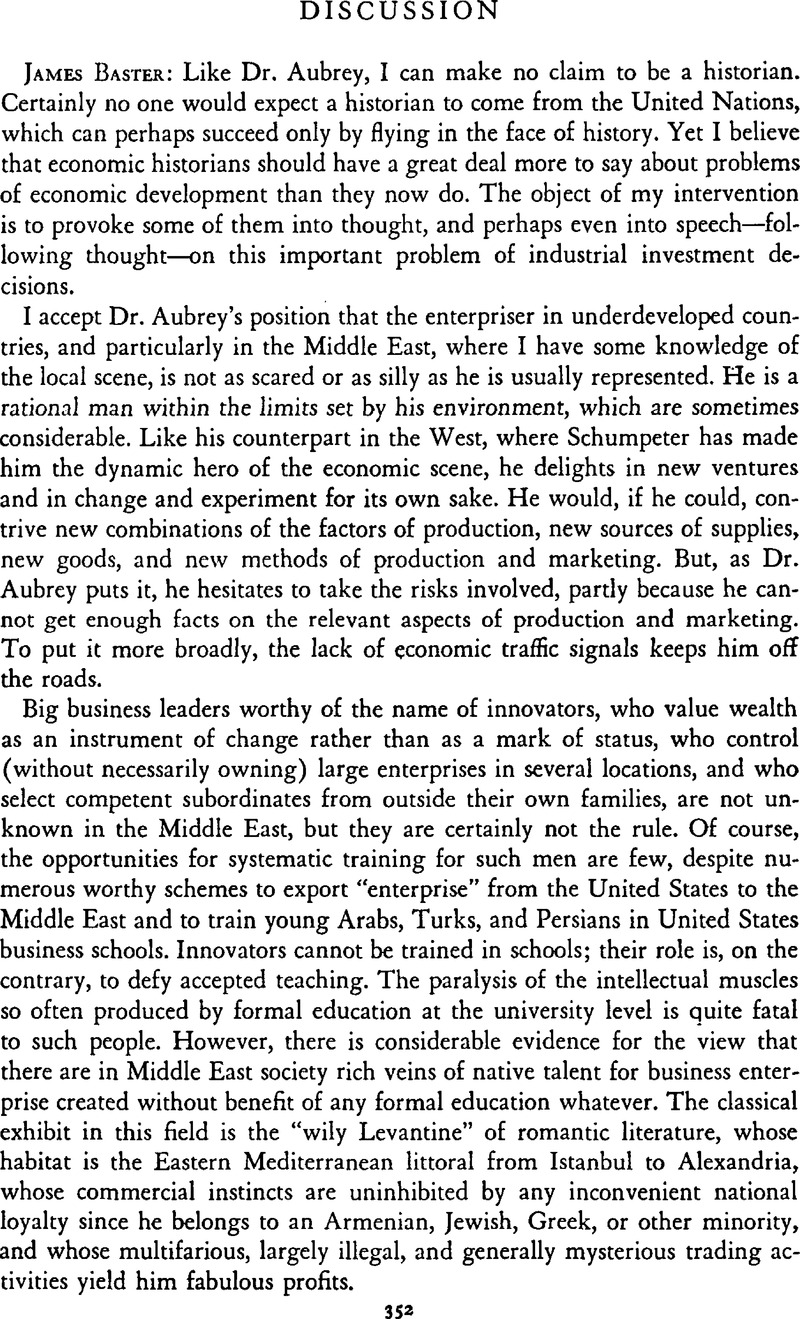No CrossRef data available.
Published online by Cambridge University Press: 03 February 2011

page 353 note 1 Profits on the gold transit trade and on foreign exchange operations in the Beirut market produced a net credit for the balance of payments of about $15 million in 1951.—Fei, Edward and Klat, Paul J., The Balance of Payments of Lebanon (Beirut, 1954)Google Scholar.
page 353 note 2 See Meyer, A. J., “Entrepreneurship,” in Middle East Economic Papers, American University of Beirut, 1954.Google Scholar
page 354 note 3 “The Development of Cotton Cultivation in Syria,” UNRWA, Quarterly Bulletin of Economic Development, February 1952.Google Scholar
page 357 note 1 As regards sources of entrepreneurship, perhaps the cotton textile industry almost everywhere has been an atypical case in the early stages of development, owing principally to a widespread pre-existing demand for its products and to technological factors.